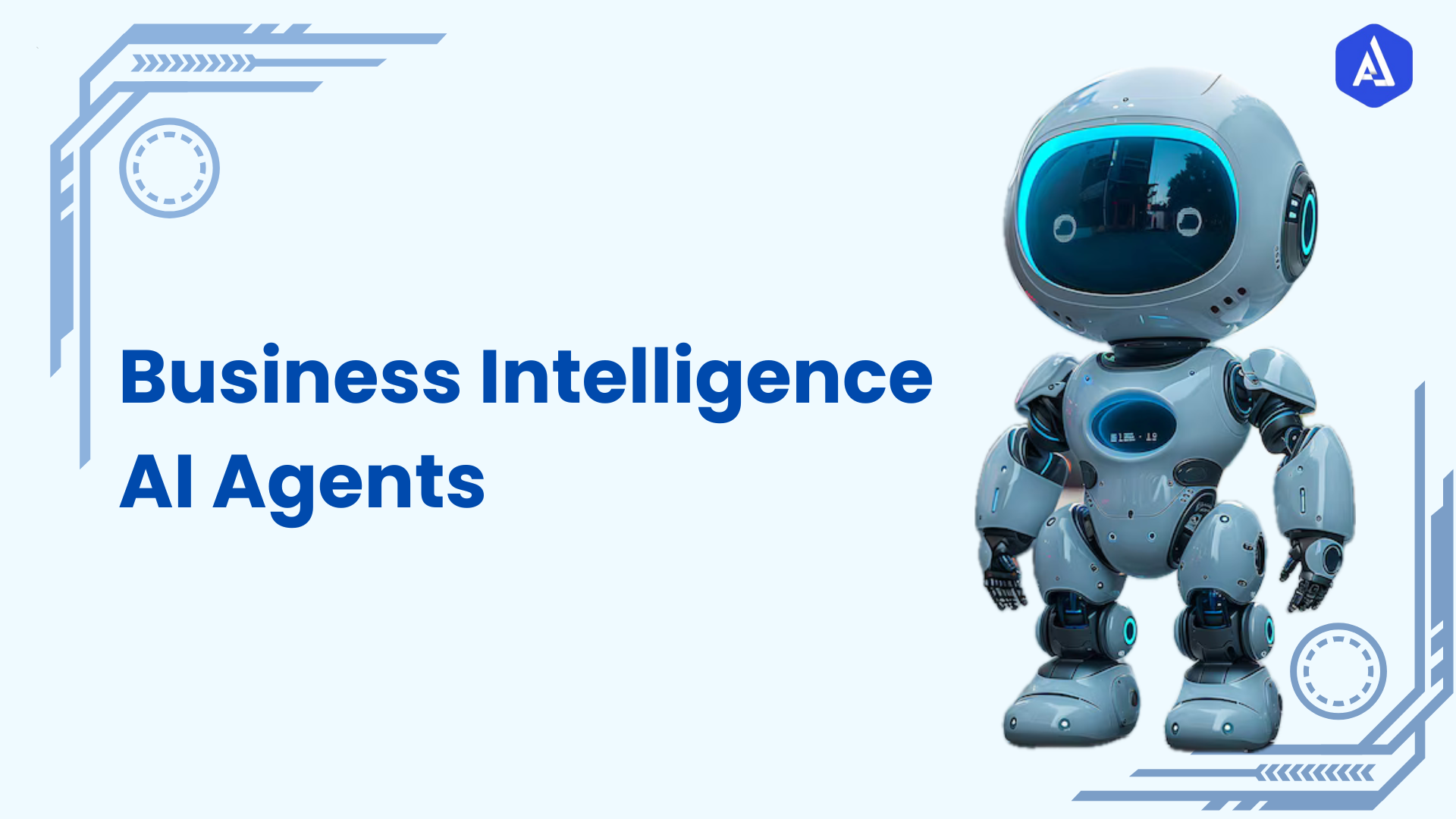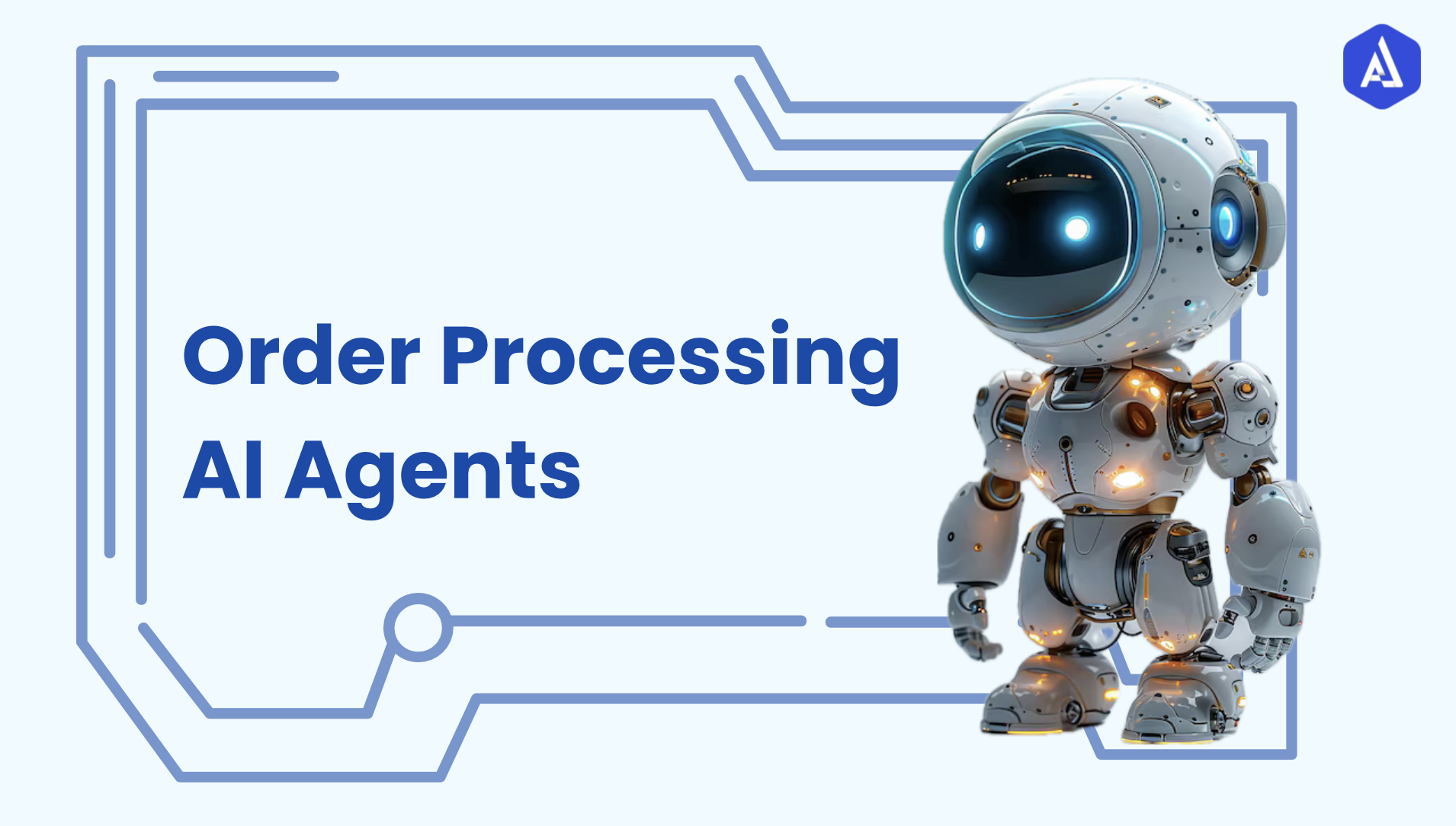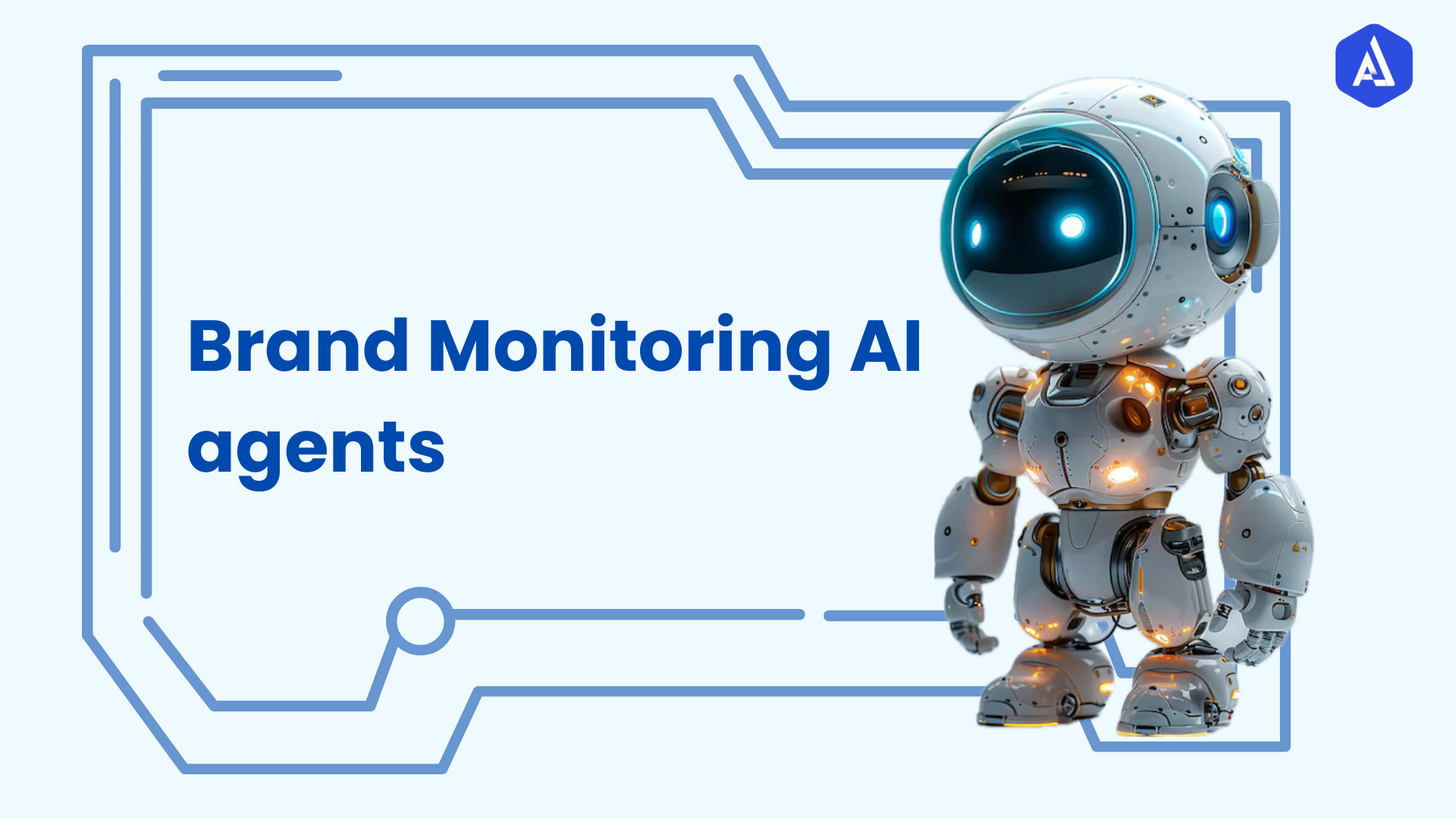Introduction
Financial analysis AI agents are intelligent systems that help organizations make informed decisions about financial data and trends, further acting to make suitable decisions. Agents encourage organizations to go through an automatic collection process and analysis of the data they provide, which is beneficial in optimizing financial performance and strategy to enhance growth and profitability.
About the Process
a. Existing Financial Analysis Steps
-
Data Collection: Financial analysts gather data from various sources, including financial statements, market reports, and internal databases. This process can be time-consuming and prone to errors if done manually.
-
Data Cleaning and Preparation: Once collected, the data must be cleaned and organized to ensure accuracy. Analysts often spend significant time correcting inconsistencies and formatting issues before analysis can begin.
-
Data Analysis: Analysts use various techniques to interpret the data, including ratio analysis, trend analysis, and forecasting. This step requires deep expertise and can take considerable time to complete.
-
Reporting: After analysis, findings are compiled into reports or presentations for stakeholders. This often involves creating visualizations such as charts and graphs to communicate insights effectively.
-
Decision-Making: Reports help stakeholders read the same for budgeting, investment, and strategic decisions. Hence, in case the analysis is not in time, or is ambiguous, such a process suffers a delay
b. Synergy with AI Agents
-
Automated Data Collection: Such financial analysis AI agents could collect data from various sources in real-time, thus reducing the time taken in data collection to a large extent and thereby minimizing errors.
-
Efficient Data Cleaning: The agents use sophisticated algorithms that quickly clean up and prepare data so that analysts can work with accurate information without manual intervention.
-
Better Data Analysis: Financial Analysis AI Agents make use of machine learning techniques to handle big datasets in a better way than human analysts; therefore, they uncover hidden patterns and trends that otherwise cannot be easily distinguished.
-
Reporting dynamics: AI agents can produce actual time reports based on using interactive visualization that allows stakeholders to interpret insights right at a glance and hastens decision-making.
-
Informed Decision-making: Financial Analysis AI Agents allow business stakeholders to derive informed decisions in the direction of the business strategy and financial performance through timely and proper analysis
When integrating a Financial Analysis AI Agent into their systems, organizations can turn their financial analysis processes into an efficient, accurate, and insightful operation that will enable them to better navigate complex financial landscapes.
Talk about the Agent:
Financial analysis AI agents are highly sophisticated systems that automate and enhance the financial processes of an organization to provide critical insights for decision-making purposes. Data from all sources within an organization is collected, cleaned through automated processes, and aggregated with advanced analytical techniques applied: trend identification and performance forecasting.
All of this comes out through real-time reports, which may contain interactive visualizations. They continuously learn from new data and enhance their capabilities over time. Seamless integration with existing systems and financial Analysis AI Agents add value to an organization by enabling efficiency, risk management, and strategic decision-making in a shifting financial environment.
Capabilities of Financial Analysis AI Agents
-
Automated Data Collection: Gathers and cleans data from multiple sources to ensure accuracy and comprehensiveness.
-
Advanced Analytical Techniques: Applies trend analysis and performance forecasting to identify patterns and predict future financial outcomes.
-
Real-Time Reporting: Generates real-time reports with interactive visualizations that make complex financial data more accessible.
-
Continuous Learning: Adapts and improves its analytical capabilities as new data becomes available.
-
Seamless Integration: Connects effortlessly with existing financial systems, minimizing disruption to current workflows.
-
Risk Management: Identifies potential risks through data analysis, allowing organizations to take proactive measures.
-
Enhanced Decision-Making: Provides actionable insights that support strategic planning and informed decision-making.
-
User-Friendly Interface: Offers intuitive dashboards that present financial information in a digestible format for users at all levels
Benefits and Values
a. What Would Have Been Used Before AI Agents?
Before the Financial Analysis of AI Agents, financial analysis had been a tiresome procedure. Most organizations depended on spreadsheets to input data and analyze, which took much time and effort from analysts. The collection of data had been fragmented, leading to inaccuracies and errors. Reporting had also been quite strenuous to the point that analysts needed extra time compiling data into presentations for stakeholders. Decision-making was slower due to the time required for the evaluation of data and generation of insights; and often missed the opportunity in a fast-paced market.
b. What Are the Benefits of AI Agents?
-
Better Efficiency: Financial Analysis AI Agents automatically collect and analyze data, saving much time spent on manual analysis. This allows the financial team to be directed toward strategic initiatives as opposed to processes.
-
Higher Accuracy: These agents avoid human error by automatically cleaning and validating data, leading to information being processed with high accuracy within organizations and, thus more accurate analysis.
-
Faster decision-making: With real-time reporting and insights, Financial Analysis AI Agents empower stakeholders to make quick-informed decisions, so organizations can quickly respond to change in the market.
-
Cost Savings: Automation of time-consuming tasks cuts the labor cost of manual analysis and reporting. Resources can now be redirected to higher-value activity within the organization.
-
Scalability: As organizations grow, Financial Analysis AI Agents should scale effortlessly with more voluminous data without a loss of performance: financial analysis keeps pace with the growing business
Financial Analysis AI Agents enable organizations to transform their financial processes into a more efficient, accurate, and strategic operation that significantly enhances the ability to navigate complex financial landscapes.
Use Cases
Financial Analysis AI Agents are versatile and efficient in most applications and meet a wide range of needs within the organization.
-
Individual Portfolio Management: Financial Analysis AI Agents continuously monitor investment portfolios, adjusting holdings as market conditions change. Powered by machine learning algorithms, these agents identify short-term inefficiencies in the markets, execute trades quickly, and maximize their investors' profits in pursuit of ever-higher-risk opportunities.
-
Lending and Credit Decisioning: Financial Analysis AI Agents employ credit reports, banking transactions, and alternative sources of data for making quicker and more accurate credit risk assessments in lending. They hasten up the mortgage application process by gathering all relevant documents and running eligibility checks while keeping loan approvals fair and just.
-
Fraud Detection and Management: AI Agents are useful for real-time transaction monitoring for fraudulent activity detection. With advanced machine learning models, the agents would detect most irregular patterns and prompt appropriate high-risk transactions for a more thorough examination so that the organizations can make less financial loss from this.
-
Financial Forecasting: With time series analysis and econometric models, Financial Analysis AI Agents provide correct predictions of market trends and financial performance. Such an ability to analyze large datasets enables providing insight based on the expertise of a seasoned financial analyst on exactly the kind of future scenarios that an organization may encounter, hence enabling it to make the best strategic decisions in advance.
-
Automated Reporting and Compliance: Financial Analysis AI Agents automate reporting through data entry and review of documents. These come up with real-time financial reports ensuring that all forms of regulatory requirements without detaching the focused auditors from the critical high-value tasks that include risk assessments and strategy planning.
Considerations
With Financial Analysis AI Agents, key technical and operational considerations must be met if they are to successfully integrate into the organization:
-
Data Quality and Accessibility: The dynamic nature of AI agents places paramount importance on data quality for their effectiveness. Organizations have to, therefore, consider appropriate data governance for maintaining the integrity and accessibility of data from all possible sources.
-
System Integration: The AI agent should seamlessly interact with the existing financial systems and software. This requires proper planning and coordination between IT and finance teams to enable seamless exchange and interoperability between these systems.
-
Regulatory Compliance: Financial institutions are governed by strict regulatory instructions. The development of AI agents necessitates setting up compliance of such systems to relevant laws and regulations, particularly in terms of data privacy and security.
-
Training and Change Management: With sufficient staff training on using AI agents, an organization will succeed in the adoption process. Change management should also be implemented to help the workforce get accustomed to new workflows and processes.
With these factors considered, organizations will effectively implement Financial Analysis AI Agents with improvement within their financial operations and lessened risk related to such a solution.
Usability of Financial Analysis AI Agents
To effectively utilize Financial Analysis AI Agents, follow this streamlined guide for setup, operation, and troubleshooting:
-
Open the AI Agent: Launch the Financial Analysis AI Agent from your application or platform.
-
Log In: Access the agent through your organization’s secure authentication method to ensure data protection.
-
Integrate with Existing Systems: Follow the on-screen prompts to seamlessly connect the agent with your current financial systems, allowing it to access necessary data.
-
Automated Data Collection: The agent will automatically gather and clean data from various sources within your organization, reducing manual effort.
-
Set Analysis Parameters: Define key metrics and parameters for financial analysis, such as time frames and specific financial indicators to monitor.
-
Utilize Advanced Analytics: Leverage the agent’s capabilities for trend identification and performance forecasting to gain insights into financial performance.
-
Generate Real-Time Reports: Access real-time reports that feature interactive visualizations, making complex data easier to understand and act upon.
-
Monitor Alerts and Anomalies: Stay informed about any anomalies or risks identified by the agent through automated alerts.
-
Collaborate Across Departments: Use the agent as a central hub for communication and collaboration among different teams, enhancing collective decision-making.
-
Troubleshooting Tips: If issues arise, refer to the FAQs or troubleshooting guides within the agent interface for quick resolutions.
Talk about the Future
Financial Analysis AI Agents will change dramatically in response to new business challenges and opportunities. Among the primary future directions, the following are highlighted:
-
Enhanced Predictive Analytics: Future agents will rely on more advanced machine learning algorithms to make more accurate forecasts on markets, which, as a result, enables proactive decision-making.
-
Real-Time Data Integration: They will connect seamlessly with real-time data sources, which allows organizations to catch new opportunities quickly or start reacting to market changes much faster.
-
Improved NLP: Advances in NLP will allow AI agents to better interpret complex financial documents. Such access will make insights more actionable for stakeholders.
-
Focus on Ethical AI: Strong emphasis on ethical practices that will promote the essence of transparency and fairness within AI operations, which is a necessary precursor to building trust in financial environments.
-
Scalability and Customization: Future developments will provide seamless scaling and customization capabilities for AI agents, therefore making advanced financial analysis accessible even to small and medium-sized companies and larger ventures.
This way, organizations will be able to enhance the management of their financials in an ever-changing landscape.


